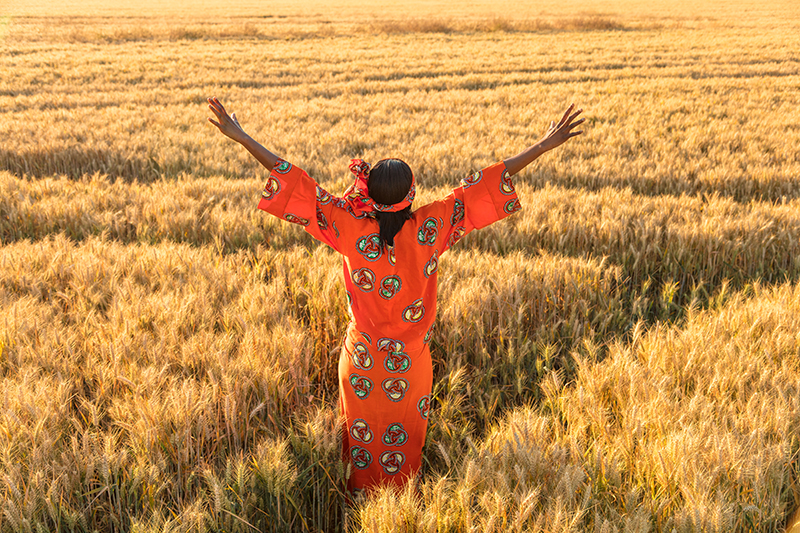Soumis par admin2 le

The World Bank has expressed its satisfaction with the state of implementation of the West Africa Agriculture Productivity Program (WAAPP). CORAF is mandated by the Economic Commission of West African States to coordinate the program at the regional level.
Speaking at the end of a routine institutional support mission (ISM) at CORAF’s Headquarters in Dakar, Senegal, on Thursday, November 8, 2017, Dr. Abdoulaye Toure, Lead Agriculture Economist at the World Bank praised the state of progress of WAAPP.
“Overall, we are satisfied with the WAAPP’s contribution in closing food and income gaps, building the next generation of agric researchers, generating critical innovations and technologies and laying the foundation for sustainable agricultural research in West Africa,” said Dr. Toure.
At the inception of the program in 2007, the WAAPP’s primary target was to reach six million people. Based on available evidence, the program has surpassed its initial goals and reached more than 9 million people directly and another 56 million indirectly.
More than two hundred technologies were released and adopted by almost 4,5 million producers and processors on about 4.8 million hectares.
WAAPP financed master’s degree and Ph.D. studies for 1021 youths. This represents 72% of men and 28% women. Some of these young researchers are already fully involved in advancing critical research in their respective countries.
With improved research equipment and infrastructure, the nine national centers of specialization are creating the required collaboration and partnerships to catalyze the critical innovations and technologies to address the region’s priority crops.
By increasing the major crops yields between 30% for dry cereals and 150% for rice, fruit and tubers, the program has had a considerable impact on food security and caloric intake. Caloric consumption rose from 2,777 kcals to 2,964 kcals and the “hunger period” reduced by 28 to 55% according to the commodity. WAAPP has also increased by 34% the economic situation of farmers as well as transformed communities.
CORAF Must Do More
While lauding the progress made, Dr. Toure challenged CORAF to do more in the uptake of technological innovations.
“CORAF must do more to facilitate the exchange of technologies and innovations at the country level.
“CORAF is also accountable to the expected results particular with respect to the adoption of technologies. What this means is that as part of its regional coordination mandate, CORAF must play an active role in facilitating technology exchanges and adoption.”
Helping Make CORAF a Sustainable Instrument
Dr. Toure further reiterated the World Bank’s commitment to make CORAF a sustainable instrument to help advance the research and development agenda in West and Central Africa.
He praised the new strategic direction of CORAF which according to him has renewed confidence in CORAF.
“I see confidence is back. I see a strong and solid team, focused on results,” said the World Bank Task Team Leader.
“You can count on the support of the Bank as long as you continue in this direction.
“Satisfactory”
Institutional support missions are also designed to rate the performance of CORAF and implementing bodies of the WAAPP.
Based on progress in the implementation of WAAPP as of November 2018, CORAF got a satisfactory score.
What is WAAPP?
WAAPP is an initiative of ECOWAS. Started in 2008, the WAAPP seeks to make agriculture more productive, sustainable and profitable for smallholder farmers. It aims to improve the conditions of life of consumers through the provision of agricultural products at competitive prices, build a critical mass of researchers for sound, efficient and collaborative research programs and finally to ensure that technologies generated nationally are available regionally.
The program is paid for by countries through a loan system obtained from the World Bank. CORAF implements the program at the regional level. All parties meet twice a year to evaluate the state of implementation and agree on clear actions to speed up implementation of agreed results.
Closing
Out of the 13 countries that started the program, activities are ongoing in Benin, Guinea, Niger, and Togo. Operations are expected to close in December 2019 for these countries.
The program is closed in all other countries except for Mali, Ghana, and Senegal where operations all close in December 2018.
A more Ambitious WAAPP
Building on the results of the WAAPP, countries, ECOWAS, and the World Bank are finalizing plans to implement a more ambitious iteration of the WAAPP.
The new intervention aims to considerably scale up the adoption of climate-smart technologies, enhance job creation and increase access to regional markets for targeted commodities. Women and youths are central to the new program which is expected to go operational in 2019.







